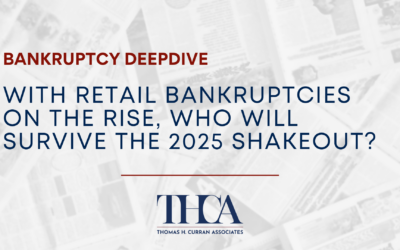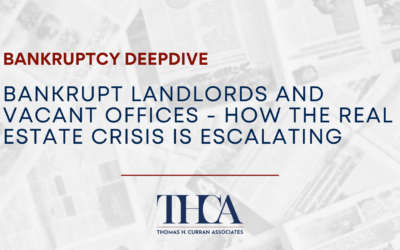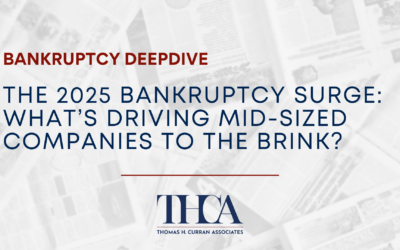Personal Bankruptcy Attorneys
Liquidation under Chapter 7. Known as a “fresh start,” Chapter 7 personal bankruptcy provides individuals with an orderly process for obtaining a discharge of all debts, except those that are deemed nondischargeable, such as student loan debt in most cases, taxes, alimony and child support obligations or debts obtained by fraud. As a condition for obtaining a discharge, a debtor must make complete and accurate disclosures and otherwise comply with the disclosure, turnover and other provisions of the Bankruptcy Code, including appearing at an in person creditors’ meeting where the debtor will be examined by the trustee and sometimes his creditors. If a married couple has filed a joint petition, they must both appear for the creditors meeting. Although the debtor can keep property deemed exempt under state or federal law, he must turn over any non-exempt property to the bankruptcy trustee so that it can be administered for the benefit of his creditors. If the debtor complies with these requirements, he can usually obtain his bankruptcy discharge in months.
The immediate benefit of filing a personal bankruptcy is that the filing of the petition results in an automatic stay that stops collection actions against the debtor. The automatic stay arises as an operation of law that requires no action by the Bankruptcy Court. However, the court may lift the stay for creditors that hold security interests in property the debtor pledged as collateral for secured loans, such as a home mortgage.
Reorganization under Chapter 13. Alternatively, for individuals who would like to retain their property, have the income necessary to work out a repayment plan with creditors and meet the limitation on debts ceiling, Chapter 13 is likely a better bankruptcy option than Chapter 7. Under a Chapter 13 plan, debtors propose to repay creditors using their disposable income over three to five years in return for a discharge of any other unpaid unsecured debts. If the plan is approved, the standing Chapter 13 trustee will distribute funds to the creditors according to the plan terms. The debtor must start making payments required under the plan within 30 days of filing it, even if the plan has yet to be approved by the court. After the plan has been completed, the debtor’s unsecured debts will be discharged.
One of the most significant advantages of a Chapter 13 bankruptcy is the opportunity for the debtors to save their homes from foreclosure. Debtors may use Chapter 13 bankruptcy to stop foreclosure proceedings, cure delinquent mortgage or other secured debt payments, or reduce the monthly payments. Nevertheless, Chapter 13 debtors may still lose their home if they fail to keep current on their mortgage payments, even if they were modified under the repayment plan. Chapter 13 debtors may also reduce or extend the payments on their other secured debts so they are paid over the course the repayment plan.
Any individual or married couple is eligible to seek relief under Chapter 13 bankruptcy, even those who are self-employed, so long as their debts do not exceed certain levels.
If the debtor has previously attempted to file for either Chapter 7 or Chapter 13 bankruptcy, he or she must wait 181 days before filing again. Finally, a debtor eligible to file for Chapter 7 or 13 bankruptcy may have his or her case dismissed if the Bankruptcy Court finds the debtor is attempting to defraud creditors.
Reorganization under Chapter 11. For individuals whose prepetition debts exceed the Chapter 13 limitations, Chapter 11 must be used to reorganize their debts. As of 2020, Chapter 13 bankruptcy is only available to debtors with regular incomes who have less than $419,175 in unsecured debt and less than $1,257,850 in secured debt. In a personal Chapter 11 bankruptcy, however, there is no cap on the amount of secured or unsecured debt a debtor may owe and there is no requirement that the debtor earn any income at all. Because of this, an individual Chapter 11 bankruptcy is likely to benefit individuals who owe large amounts of money to creditors or have little or no income but possess assets that may be sold to fund a Chapter 11 reorganization plan.
The filing of either a Chapter 11 or Chapter 13 petition by a debtor will result in the imposition of the automatic stay that stops creditors from trying to collect their debts and most other judicial proceedings. But only Chapter 13 proceedings apply the stay to co-debtors who are also responsible for paying the debtor’s loans.
Another advantage of filing for personal Chapter 11 bankruptcy is that no bankruptcy trustee will be appointed except in cases where there is fraud or mismanagement. This allows the debtor to continue managing his or her affairs. After filing the personal Chapter 11 petition, there is no deadline for when the debtor must file a reorganization plan and creditor payments will not begin until the plan is confirmed by the court. This can often take several months or longer. The debtor is required to file a disclosure statement along with the reorganization plan. For the Bankruptcy Court to approve a Chapter 11 reorganization, the plan must be approved by at least one-half of the creditors in an impaired class who also hold two-thirds of the debt in their class.
Like in a Chapter 13 case, in a personal Chapter 11 case the Bankruptcy Court will grant a discharge of the debtor’s remaining unsecured debts after he or she has completed payment under the reorganization plan.
The experienced personal bankruptcy attorneys at Thomas H. Curran Associates are ready to assist individuals in filing for personal bankruptcy protection. Our personal bankruptcy lawyers can help guide clients through the bankruptcy process in a caring, efficient, and effective way. Thomas H. Curran Associates’s attorneys will assist clients in filing the necessary bankruptcy paperwork, dealing with the trustee, negotiating with creditors and taking all other steps necessary to ensure their debt is discharged while retaining the most assets possible.
Bankruptcy Practice Results
Recent successful cases handled by the attorneys from Thomas H. Curran Associates. Find more here »
Supreme Court Denies Final Appeal, Finalizing Judgement Obtained by THCA
On June 24, 2024, the Supreme Court of the United States declined the petition to review filed by Sean Dunne and his ex-wife Gayle...
Thomas H. Curran Associates Secures Appellate Victory as Massachusetts Supreme Judicial Court Denies Appellant’s Attempt to Shortcut Ordinary Appellate Review
Thomas H. Curran Associates recently obtained an appellate victory in the Massachusetts Supreme Judicial Court on May 26, 2023, in the...
Thomas H. Curran Associates win is Affirmed in Florida, U.S. District Court – Client Wins Attorneys Fees
Law: Federal Rule of Civil Procedure 37(a)(5) Case: Premier Capital, LLC v. Larry Bryan (AP) Underlying Bankruptcy Case: In re Larry Bryan...
The Second Circuit Affirms Bankruptcy Fraud Judgment Obtained by Thomas H. Curran Associates, Recognizing the Continuous Concealment Doctrine
Law: Continuous concealment doctrine, 11 USC § 727(a)(2)(A), In re Olivier, 819 F.2d 550 (5th Cir. 1987); In re Boyer, 328 F. App’x 711,...
Thomas H. Curran Associates prevails on barring discharge due to fraud by debtor
Thomas H. Curran Associates recently secured a victory on behalf of an institutional asset manager, where the Bankruptcy Court for the...
Thomas H. Curran Associates prevails on post-trial motions and obtains full security for $23 million dollar financial fraud judgment on behalf of chapter 7 bankruptcy trustee
On February 8, 2022, the United States District Court for the District of Connecticut (Meyer, J.) enter its Order denying defendant Gayle...
Supreme Court Denies Final Appeal, Finalizing Judgement Obtained by THCA
On June 24, 2024, the Supreme Court of the United States declined the petition to review filed by Sean Dunne and his ex-wife Gayle...
Thomas H. Curran Associates Secures Appellate Victory as Massachusetts Supreme Judicial Court Denies Appellant’s Attempt to Shortcut Ordinary Appellate Review
Thomas H. Curran Associates recently obtained an appellate victory in the Massachusetts Supreme Judicial Court on May 26, 2023, in the...
Thomas H. Curran Associates win is Affirmed in Florida, U.S. District Court – Client Wins Attorneys Fees
Law: Federal Rule of Civil Procedure 37(a)(5) Case: Premier Capital, LLC v. Larry Bryan (AP) Underlying Bankruptcy Case: In re Larry Bryan...
The Second Circuit Affirms Bankruptcy Fraud Judgment Obtained by Thomas H. Curran Associates, Recognizing the Continuous Concealment Doctrine
Law: Continuous concealment doctrine, 11 USC § 727(a)(2)(A), In re Olivier, 819 F.2d 550 (5th Cir. 1987); In re Boyer, 328 F. App’x 711,...
Supreme Court Denies Final Appeal, Finalizing Judgement Obtained by THCA
On June 24, 2024, the Supreme Court of the United States declined the petition to review filed by Sean Dunne and his ex-wife Gayle...
Thomas H. Curran Associates Secures Appellate Victory as Massachusetts Supreme Judicial Court Denies Appellant’s Attempt to Shortcut Ordinary Appellate Review
Thomas H. Curran Associates recently obtained an appellate victory in the Massachusetts Supreme Judicial Court on May 26, 2023, in the...
Thomas H. Curran Associates win is Affirmed in Florida, U.S. District Court – Client Wins Attorneys Fees
Law: Federal Rule of Civil Procedure 37(a)(5) Case: Premier Capital, LLC v. Larry Bryan (AP) Underlying Bankruptcy Case: In re Larry Bryan...
Bankruptcy Areas of Expertise
- Bankruptcy Litigation
- Bankruptcy Trustee Representation
- Avoidance & Recovery Actions
- Chapter 11 Trustees & Examiners
- Discharge Litigation
- Bankruptcy Fraud Investigations
- Cross Border Foreign Litigation
- 363 Bankruptcy Sales
- Bankruptcy Preference Actions
- Involuntary Bankruptcy
- Chapter 11/13 Plan Objections
Bankruptcy News
With retail bankruptcies on the rise, who will survive the 2025 shakeout?
Bankruptcies reached an unprecedented level in 2024, and the trend appears to be continuing into this year. Some notable major retailers...
Bankrupt landlords and vacant offices – How the real estate crisis is escalating
Following the pandemic, a significant transformation in the corporate work structure was inevitable, especially for professionals...
The 2025 bankruptcy surge: What’s driving mid-sized companies to the brink?
A mere two months have passed since the beginning of 2025 and chapter 11 bankruptcy filings are already steadily trending upwards compared...
Evidence of Intent to ‘Hinder’ Wasn’t Sufficient to Deny Discharge, District Judge Says
In the recent case Wylie v. Miller, 22-10952 (S.D. Mich. March 29, 2024) [1] , a bankruptcy court’s decision to deny a couple’s discharge...
Creditor’s Don’t Receive Estate Assets Recovered After the Last Chapter 13 Plan Payment
In In re McCrorey, 18-00696 (Bankr. D. Idaho Jan. 26, 2024) [1] , Chief Bankruptcy Judge Noah G. Hillen of Boise, Idaho, held that if a...
Electric Scooter Company Bird files for Bankruptcy | CNBC
Bird, the popular electric scooter rental company filed for Chapter 11 bankruptcy protection in Florida Federal Court last month. Bird's...
With retail bankruptcies on the rise, who will survive the 2025 shakeout?
Bankruptcies reached an unprecedented level in 2024, and the trend appears to be continuing into this year. Some notable major retailers...
Bankrupt landlords and vacant offices – How the real estate crisis is escalating
Following the pandemic, a significant transformation in the corporate work structure was inevitable, especially for professionals...
The 2025 bankruptcy surge: What’s driving mid-sized companies to the brink?
A mere two months have passed since the beginning of 2025 and chapter 11 bankruptcy filings are already steadily trending upwards compared...
Evidence of Intent to ‘Hinder’ Wasn’t Sufficient to Deny Discharge, District Judge Says
In the recent case Wylie v. Miller, 22-10952 (S.D. Mich. March 29, 2024) [1] , a bankruptcy court’s decision to deny a couple’s discharge...
With retail bankruptcies on the rise, who will survive the 2025 shakeout?
Bankruptcies reached an unprecedented level in 2024, and the trend appears to be continuing into this year. Some notable major retailers...
Bankrupt landlords and vacant offices – How the real estate crisis is escalating
Following the pandemic, a significant transformation in the corporate work structure was inevitable, especially for professionals...
The 2025 bankruptcy surge: What’s driving mid-sized companies to the brink?
A mere two months have passed since the beginning of 2025 and chapter 11 bankruptcy filings are already steadily trending upwards compared...
Contact Us
Are You In Need of Legal Counsel for a Bankruptcy Matter, Business Transaction, or Commercial Litigation?
Contact our team today.
Call us at (617) 207-8670 or use the quick contact form below.
Austin Office
7710 N. FM 620
Building 13-D
Austin, TX 78726
Boston Office
15 Broad Street
Suite 610
Boston, MA 02109
New York Office
17 State Street
40th Floor
New York, NY 10004
London Office
The Leadenhall Building
Level 30
122 Leadenhall Street
London EC3V 4AB
Tags: personal bankruptcy attorney personal bankruptcy lawyer personal bankruptcy options





